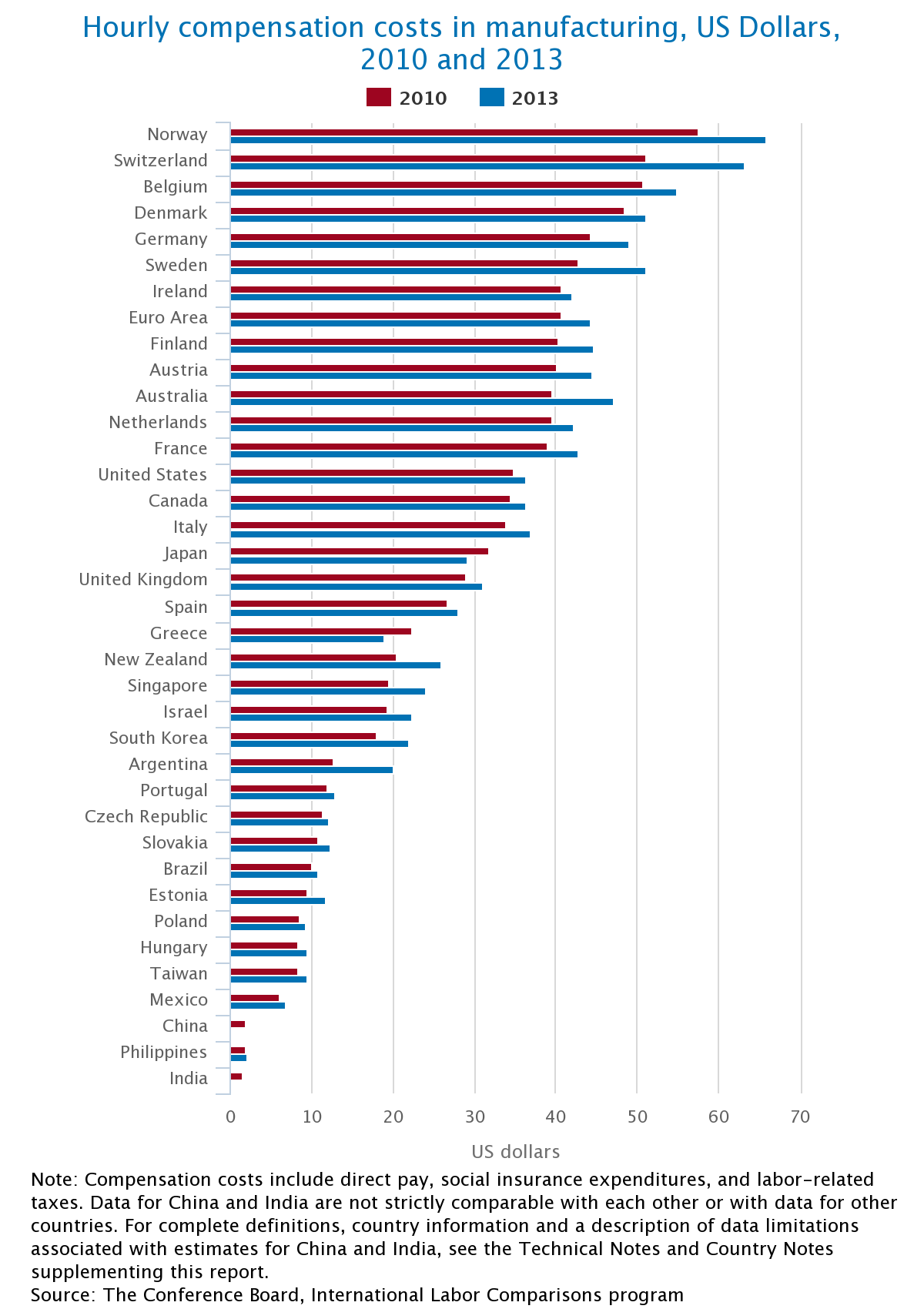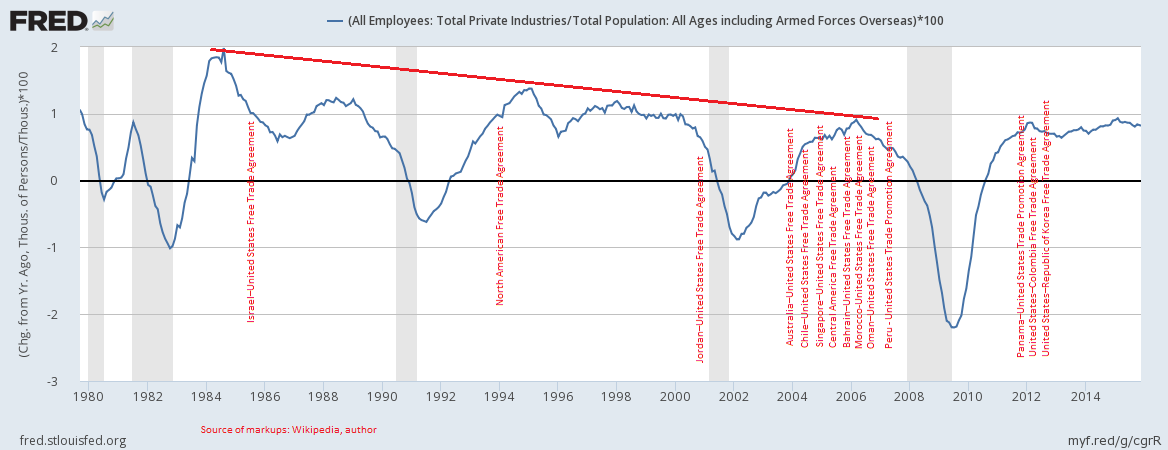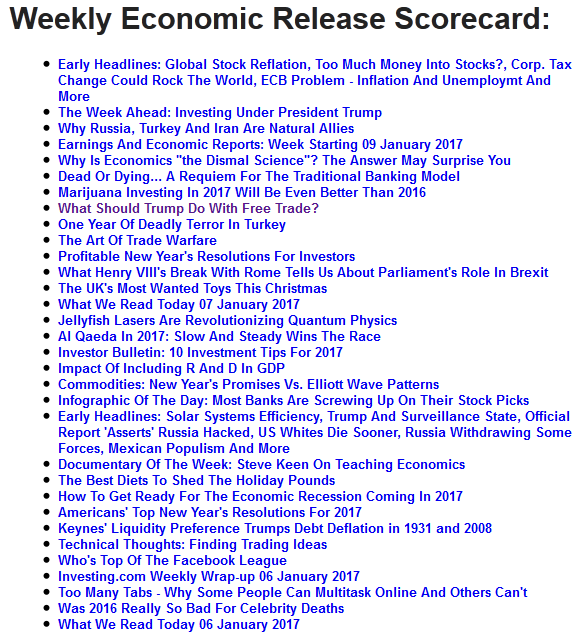Water is necessary for your health. Drink too much water and you can get hyponatremia. It is very serious, and can be fatal. Too much of anything is not good. President-elect Trump believes one of the major problems in the economy is too much free trade.
Follow up:
Here is President-elect Trump's 7 point plan on free trade:
1. Withdraw from the Trans-Pacific Partnership, which has not yet been ratified.
2. Appoint tough and smart trade negotiators to fight on behalf of American workers.
3. Direct the Secretary of Commerce to identify every violation of trade agreements a foreign country is currently using to harm our workers, and also direct all appropriate agencies to use every tool under American and international law to end these abuses.
4. Tell NAFTA partners that we intend to immediately renegotiate the terms of that agreement to get a better deal for our workers. If they don’t agree to a renegotiation, we will submit notice that the U.S. intends to withdraw from the deal. Eliminate Mexico’s one-side backdoor tariff through the VAT and end sweatshops in Mexico that undercut U.S. workers.
5. Instruct the Treasury Secretary to label China a currency manipulator.
6. Instruct the U.S. Trade Representative to bring trade cases against China, both in this country and at the WTO. China's unfair subsidy behavior is prohibited by the terms of its entrance to the WTO.
7. Use every lawful presidential power to remedy trade disputes if China does not stop its illegal activities, including its theft of American trade secrets - including the application of tariffs consistent with Section 201 and 301 of the Trade Act of 1974 and Section 232 of the Trade Expansion Act of 1962.
I spent the first 25 years of my career managing movements of materials around the world - including playing with financing from many exim banks. My epiphany came in 1972 when I could not source forged nuclear valves manufactured in the USA [the US Navy was sourcing these items overseas also]. This led me to begin to identify critical product after product no longer manufactured in the USA.
In these cases, the reason was not free trade, but regulations (usually environmental) which made manufacture of these products too expensive (and sometimes impossible to meet the environmental standards) in America.
Many believe that the USA labor costs are too high, but labor is not necessarily the governing factor in trade. The USA has one of the highest productivity levels in the world.

The USA has a tax system which taxes production in the USA (labor, property, income et al taxes) but does not tax imported items [note that many / most countries refund to the manufacturer any domestic taxes paid for the items being exported].
My point here is that the loss of manufacturing (or services) cannot be only be laid at the feet of "free" trade. For U.S. manufacturing, real output has been increasing over the years while employment and employment costs have declined. Spell this effect as a-u-t-o-m-a-t-i-o-n.
I believe in "free" trade, but the devil is what is "free".
- Having foreign products compete with nationally made products should lower costs to consumers and improve quality.
- On the other hand, when trade causes services or production to relocate overseas - especially if sectors are eliminated - is usually bad. Trade must be MANAGED and not be allowed to create a situation where more jobs are lost due to imports than gained from exporting.
But free trade is not the whole story. Consider that the start of the decline of the rate of jobs growth happened well before any major free trade agreement took affect.
Year-over-Year Employment Gains Expressed As Percent of USA Population

The FRED graph above expresses job growth as a percent of population - and includes the overlay of the implementation date of the free trade agreements.
One major problem with imports vs. domestic production / services is the lack of taxation on imports. This tips the scales of competition in favor of the imports. The elimination of all taxes on business in the USA - and the implementation of a VAT tax which taxes both imports and domestic products equally is a simple solution. This would be revenue neutral to governments, and theoretically only a small increase to consumers.
Another issue with trade is that the USA has fairly strict environmental laws - and imports from the developing world generally are manufactured to lower environmental standards. The planet is still being polluted - just in a different place. Imported items must be manufactured under the same environmental conditions as products manufactured in the USA.
It is likely existing free trade agreements are flawed. Many of these agreements now have been in affect for 20 years - and things change in 20 years. There should be a sunset on all laws and agreements - and it is time to revisit and renegotiate the existing agreements.
My position is that there logically is a problem with trade and something needs to be done. Trade needs to be jobs neutral. But, in implementing trade policy, one must recognize a significant factor in the loss of jobs comes from automation.
Other Economic News this Week:
The Econintersect Economic Index for January 2017 again insignificantly improved with the economic outlook for weak growth. The index remains marginally above the lowest value since the end of the Great Recession. But there are indications of better dynamics in our index in the future. Six month employment growth forecast indicates little change in the rate of growth.
Bankruptcies this Week from bankruptcydata.com: Roust (f/k/a Central European Distribution Corporation and CEDC), Bonanza Creek Energy
Click here to view the scorecard table below with active hyperlinks
Weekly Economic Release Scorecard:

